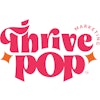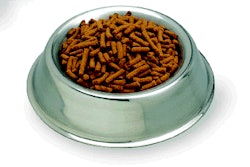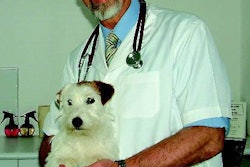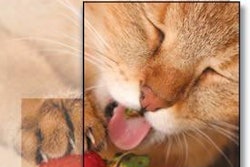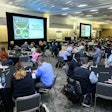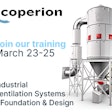The humanization of pets has been enormously positive for the petfood industry. However, there's another side to humanization, as we're seeing now in the wake of numerous petfood recalls.
People, especially those who pay for higher-priced petfoods, often think of their pets as "furry kids." So if a pet dies from eating contaminated petfood, many owners tend to think they should be able to collect damages for pain and suffering. Most states in the US do not agree. They treat pets as personal property, just like cars and computers. But that could be changing.
Giving pets humanlike legal status
Lawsuits filed by owners of dogs and cats that may have died from eating contaminated petfood could press lawmakers and courts to upgrade pets' legal status. "You'll see a lot of pressure on legislators to remove liability barriers, to not see these animals as property but as entities like humans," says Jon Katz, the author of several books on pet/people relationships.
Some barriers have already been removed. Appellate court decisions in at least six US states permit damages for emotional distress in some instances. The state of Rhode Island and several cities have legally defined pet owners as guardians, in effect equating pets with children.
Katz warns that giving pets humanlike legal status could create troublesome consequences for veterinarians, petfood and toy companies, shelter operators and perhaps even pet owners themselves. For veterinarians, it could translate into higher malpractice insurance premiums and more defensive medicine (higher veterinary bills).
The idea pet owners are entitled to damages for emotional distress reflects what Katz calls a seismic shift in people's relationship to pets. Giving pets a humanlike legal identity might lead to higher liability awards if, for instance, a dog chokes on a chew toy, an airline misroutes a cat or an animal dies in a car accident. Parties who want to represent the rights of pets could step in and object to euthanasia. Says Katz, "I don't think people have thought through the consequences here."
Back to the present
Because of the recent recalls, I think most petfood companies will adopt food safety systems that are as good as those in human food plants. They'll probably promote this on their packaging with messages like "Food safety ensured by HACCP."
How you respond to this industry-wide challenge will determine if and how you recover. Oriental wisdom asserts that every crisis carries two elements, danger and opportunity. No matter the difficulty of the circumstances, no matter how dangerous the situation, at the heart of each crisis lies a tremendous opportunity. Good fortune lies ahead for those who know the secret of finding the opportunity within each crisis.
It's time to act
"Let's set up an industry-wide crisis fund to help the pets and people affected by contaminated petfoods, no questions asked," said Brian Connolly, cofounder of Castor & Pollux Pet Works, at Petfood Forum 2007. I think he is right, and the sooner we do it the better. For more Petfood Forum quotes, see p. 31.

